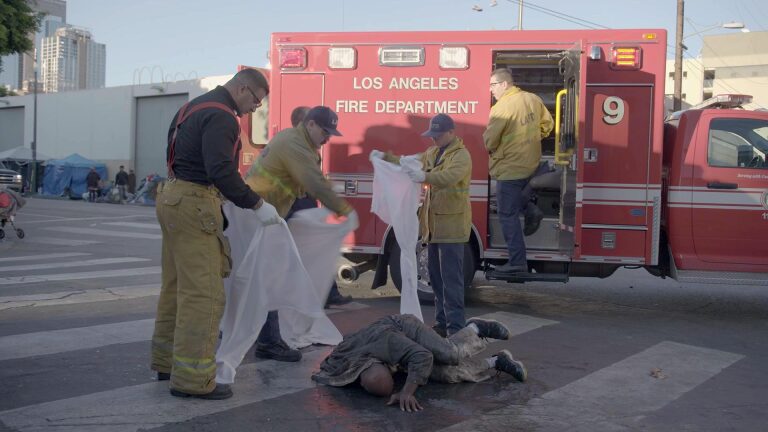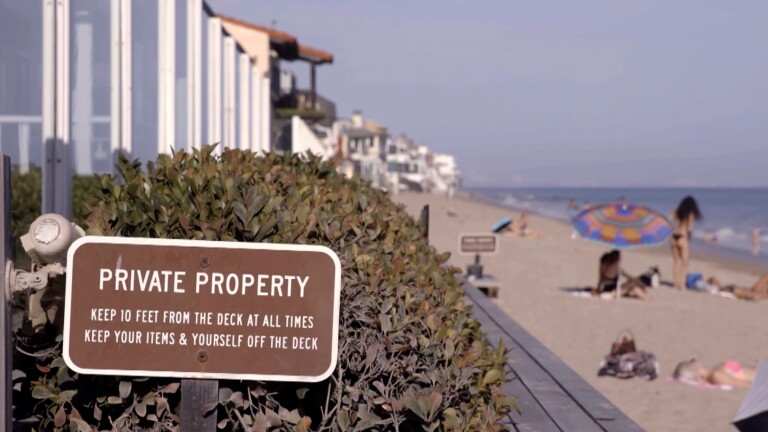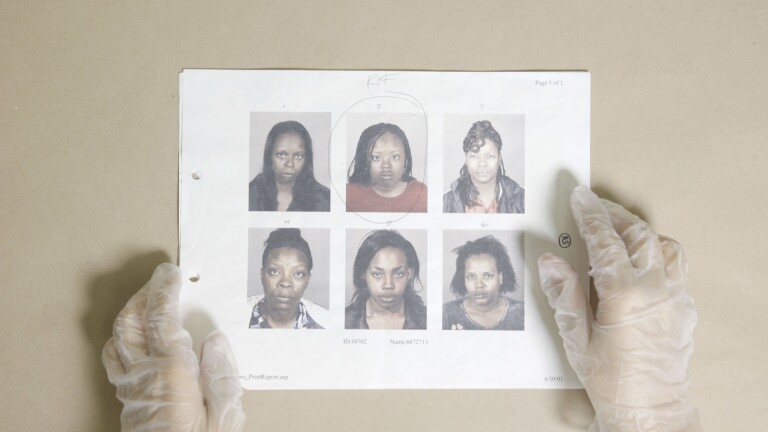
The Long and Dirty History of Political Ad Campaigns
No matter how we may feel about it, there's no question that negative campaigning is here to stay. If it didn't work, nobody would use it! And getting down in the gutter has a long, colorful history. Take a trip with Judy Muller along the "low road."
Transcript:
Muller: You may be under the impression that this latest presidential campaign set a new low for down-and-dirty politics. But America has a time-honored tradition of mud-slinging, and this last election is hardly the muddiest.
Let's go back -- way back -- to the year 1800.
Thomas Jefferson's supporters repeatedly called John Adams a monarchist -- absolutely the worst thing you could say about someone back then, especially since it wasn't true.
Adams supporters called Jefferson an atheist -- also not true. We can only imagine how that mud fest would have played out if they'd had television. Actually, someone did imagine it, creating ads out of the rhetoric of the time.
[Voiceover on fake Adams ad]: Are you prepared to see your dwellings in flames? Female chastity violated? Children writhing on a pike? I'm John Adams, and I approve this message, because Jefferson is the son of a half-breed Indian squaw raised on hoecakes.
Muller: The presidential contest in 1884 was even worse. The Republicans skewered Democratic candidate Grover Cleveland, calling him a "lecherous beast" and a "moral leper" because he had once fathered a bastard child. That resulted in the infamous GOP chant "Ma, ma, where's my pa?" to which Cleveland supporters responded, "Gone to the White House, ha ha ha!" And we found a few other nasty nuggets from campaigns past.
1828 -- Candidate Andrew Jackson was called a "murderer," his mother a "prostitute," and his wife an "adulteress."
1876 -- Democrats claimed Rutherford B. Hayes shot and wounded his own mother in a drunken "fit of insanity."
1884 -- Democrats jeered at the GOP candidate with the chant "Blaine, Blaine, James G. Blaine, the continental liar from the State of Maine."
Tom Hollihan/USC Annenberg Media and Politics Professor: Politics has always been a blood sport in the United States. The odds of having a campaign and not having a lot of personal invectives thrown about were really pretty rare.
Muller: So let's fast forward to 1952 and the very first attack ad on television, in which Democrats charged that Republicans would say one thing and do another.
[Clip from political ad on TV]
Muller: In that same year, the GOP started rumors that Democrat Adlai Stevenson was a homosexual, something that seems as quaint today as charging that a candidate has black ancestors, which actually happened in 1920 when a Democratic whisper campaign said that about Warren G. Harding. A candidate's religion used to be fair game, as well. Three-time presidential candidate Al Smith was attacked for his Catholicism and the belief that he would take orders from the Pope, something that lingered into John Kennedy's day.
How times have changed. Just last month, the two candidates -- one of them a Mormon -- were hosted by a Catholic cardinal at a dinner named for Al Smith.
In 1964, nasty rhetoric took on a fever pitch with the infamous "Daisy commercial." The Lyndon Johnson campaign suggested that GOP candidate Barry Goldwater could not be trusted with the nuclear football.
Daisy commercial [on TV]: Four, three, two, one, zero.
Hollihan: The daisy commercial was probably the most savagely negative ad up until that time because it essentially made the argument that if you don't vote to re-elect President Johnson and you vote for Goldwater, you're essentially voting for nuclear war.
Muller: In 1988, the face of fear was crime. George H.W. Bush sanctioned what many viewed as a racist commercial tying a furloughed convict to the Democratic candidate, Michael Dukakis.
Willie Horton ad [on TV]: Horton received 10 weekend passes from prison. Horton fled, kidnapped a young couple, stabbing the man, and repeatedly raping his girlfriend.
Muller: By the time 2004 rolled around, mud was in full sling. Democrat John Kerry, who earned three Purple Hearts as the officer in charge of a swift boat in Vietnam, was eviscerated in a commercial quoting other vets as saying he had aided the enemy by becoming an anti-war activist.
Anti-Kerry ad [on TV]: We couldn't trust John Kerry then; how could we possibly trust him now?
Muller: Which brings us up to this last year and the Obama-Romney campaign. Certainly there was no shortage of cheap shots.
Anti-Romney ad [on TV]: Mitt Romney would turn back the clock for women because Mitt Romney is wrong for women's health.
Anti-Obama ad [on TV]: Welcome to the new normal, where over eight percent unemployment is doing fine.
Muller: So is this a matter of "the more things change, the more they stay the same"? Certainly, campaigns have always been ugly, as we've just seen. But this last campaign was ugly on steroids. Why? Because of Super PAC money. Never before has so much money from rich donors been available to target everything from congressional races to abortion. Super PACs have, in effect, become shadow political parties.
Hollihan: Often the same consultants who are advising a campaign are also consulting with a Super PAC, and sometimes they're all done out of the same office suite. So it's a charade, if you will.
Muller: In previous eras, the mud slinging of political campaigns was often forgotten once the newly elected president got down to the business of governing and working with the other side. But the divisiveness between the parties right now does not bode well for progress.
Hollihan: I think that it's much more difficult for people to set aside their partisan differences and to work together collectively than it ever was before in American history.
Muller: That old cliche "only time will tell" may not offer much comfort, but if you think about what time has already told us, we can at least put nasty partisan politics in some historical context. As author Joseph Cummins points out, "Probably the only clean election in American history was the first one, in 1789...George washington ran unopposed."























